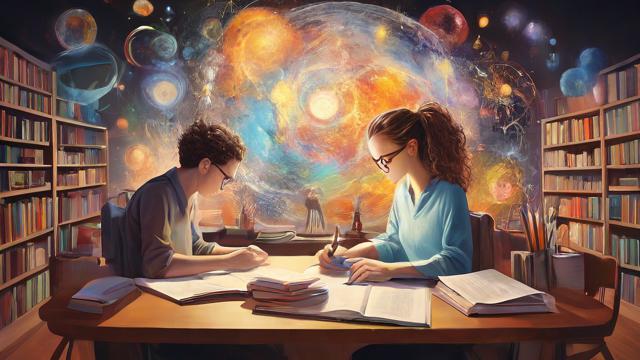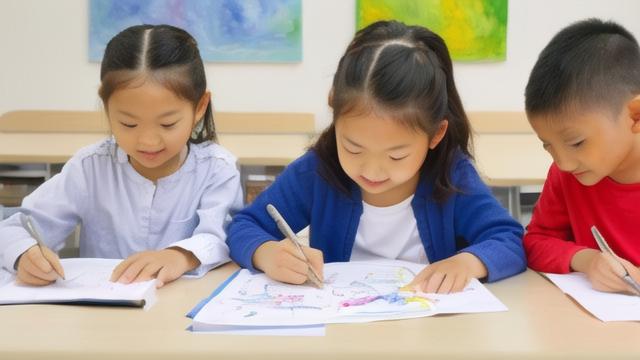Art education holds profound significance in the holistic development of individuals and societies. It encompasses not only the acquisition of artistic skills but also fosters creativity, Critical Thinking, Cultural Awareness, and emotional intelligence. In this comprehensive exploration, we will delve into the multifaceted significance of art education, examining its impact on personal growth, academic achievement, societal well-being, and professional opportunities.
| Aspect of Art Education | Significance |
| Personal Growth | Art education nurtures self-expression, allowing individuals to articulate their emotions, thoughts, and experiences through visual, auditory, or performative mediums. This process enhances self-awareness, builds confidence, and promotes mental well-being by providing an outlet for stress relief and self-discovery. |
| Creativity & Innovation | By encouraging experimentation, risk-taking, and imaginative thinking, art education stimulates creative problem-solving abilities that are transferable across disciplines. It cultivates a mindset that is open to new ideas and perspectives, which is crucial in today's rapidly changing world. |
| Critical Thinking & Analysis | Studying art history, theory, and criticism hones analytical skills, enabling students to interpret complex visual and cultural texts. This deepens their understanding of historical contexts, social issues, and human behavior, fostering a more informed and empathetic global citizenry. |
| Academic Enhancement | Research consistently shows a positive correlation between engagement in arts education and improved performance in other academic subjects. The cognitive skills developed through art—such as spatial reasoning, pattern recognition, and attention to detail—enhance learning capabilities in areas like mathematics, science, and language arts. |
| Cultural Awareness & Appreciation | Art serves as a window into diverse cultures, histories, and belief systems. Exposure to various artistic traditions broadens students' horizons, fostering respect for cultural diversity and promoting cross-cultural understanding. This is particularly important in our interconnected world, where empathy and global consciousness are essential. |
| Emotional Intelligence & Social Skills | Collaborative art projects and performances encourage teamwork, communication, and empathy. Students learn to listen actively, give and receive constructive feedback, and appreciate the perspectives of others. These skills are vital for building healthy relationships and functioning effectively in any professional setting. |
| Career Opportunities | While some pursue careers directly related to the arts (e.g., fine artists, designers, performers), many graduates with an art education background find success in fields such as advertising, marketing, graphic design, architecture, interior design, teaching, museum curation, and even technology and innovation sectors. The creative and critical thinking skills they possess are highly valued by employers. |

FAQs:
1、Q: Is art education only beneficial for those pursuing a career in the arts?
**A: Absolutely not. The skills and qualities developed through art education—creativity, critical thinking, adaptability, and collaboration—are universally applicable and can greatly enhance one's performance and fulfillment in any profession. Moreover, the ability to think creatively and solve problems innovatively is increasingly sought after in the modern workforce.
2、Q: How can schools integrate art education effectively into their curricula given limited resources?
**A: Schools can adopt a flexible approach to integrating art education by leveraging community partnerships, inviting local artists for workshops, utilizing online resources and tutorials, organizing interdisciplinary projects that combine arts with other subjects, and prioritizing low-cost materials that encourage creativity (e.g., recycled materials for sculpture). Additionally, emphasizing process over product helps ensure that all students, regardless of their artistic background or talent level, can benefit from and enjoy the experience.
小编有话说:
艺术教育不仅仅是关于绘画或音乐课程;它是培养全面发展个体的关键,通过艺术,我们学会用不同的方式看世界,理解他人,并表达自我,在快节奏、技术驱动的现代社会中,艺术提醒我们人性的本质和创造力的力量,投资于艺术教育不仅是对个人的投资,也是对我们社会未来的投资,它培养了能够创新、同理心强、适应力强的公民,为构建更加和谐、富有创造力的世界奠定了基础。
[免责声明]本文来源于网络,不代表本站立场,如转载内容涉及版权等问题,请联系邮箱:83115484@qq.com,我们会予以删除相关文章,保证您的权利。







